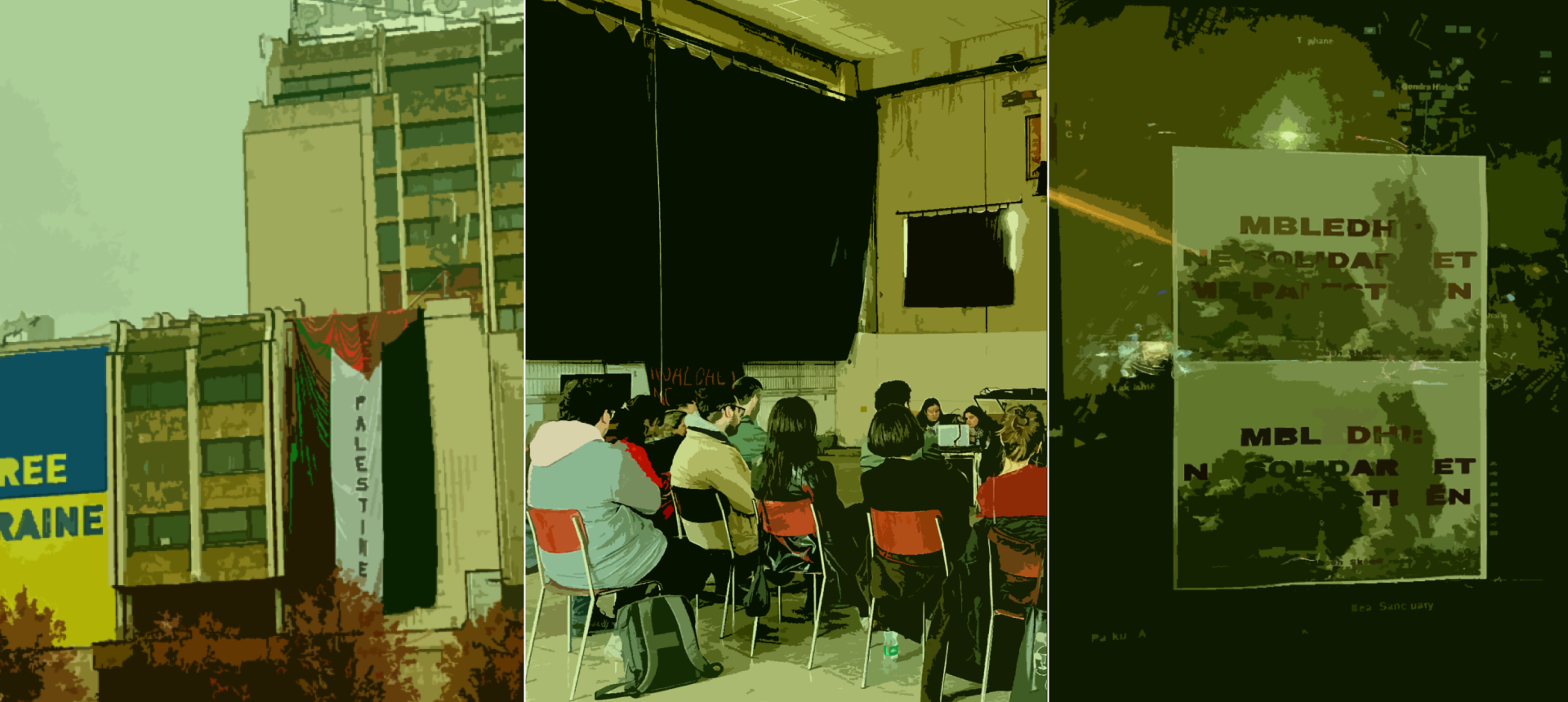
Voices in Solidarity with Palestine from Prishtina
We understand the consequences of silence, so we refuse to remain silent.
|15.03.2024
|
I was among ten or fifteen other people. About two million others, many of whom have experienced firsthand the danger that comes from remaining silent in the face of war, did not come out to protest.

Anita Nikaj
Anita Nikaj is a feminist activist and a journalist at “Nacionale”. She completed her studies in journalism at the University of Prishtina. Nikaj was part of the internship program within the project “Innovation for Resilient Media and Citizen Engagement” funded by the European Union Office in Kosovo and implemented by K2.0 and the GAP Institute.
This story was originally written in Albanian.